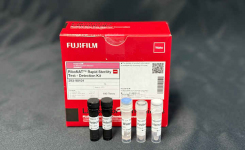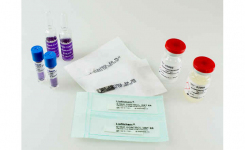Coppe Laboratories has announced the availability of testing for a tick-associated virus, the Powassan Virus (POWV).
Transmitted by the tick known to carry Lyme disease bacteria, the POWV is a member of the family of viruses that include such familiar names as Zika, West Nile, and Yellow Fever. Coppe Laboratories is the first commercial laboratory to provide POWV testing, which will include both a direct and indirect test.
Symptoms associated with POWV are similar to those of Lyme disease, but may be more severe.
Fever, headache, nausea, vomiting muscle weakness, and stiff neck are common. In serious cases, POWV causes fatigue, confusion, memory loss, and encephalitis.
Although the typical bullseye rash associated with Lyme disease is not a sign of Powassan infection, an individual affected with Lyme disease bacteria may also be infected with POWV, since ticks often carry more than one pathogen. A study by Coppe Laboratories in 2015 demonstrated that POWV was detected on average in 3-8% of black-legged ticks across Wisconsin. Eight percent of the ticks tested harbored more than one pathogen and Borrelia was positive in all co-infections. In the “hyperendemic” area of northwestern Wisconsin, 52% of the ticks studied carried Borrelia and POWV was detected in 11%.
The CDC has noted that POWV risk is present in the same areas where Lyme disease is prevalent.
“Some patients with ongoing symptoms of Lyme disease who have not responded to the usual antibiotics may be infected with other pathogens, like Powassan virus,” said Dr. Konstance Knox, CEO of Coppe Laboratories, who noted that Powassan virus may be underreported because of the lack of commercial testing. “Our goal with Coppe Laboratories’ new testing for Powassan virus is two-fold: To help physicians provide better diagnoses and information to patients and to gain a more realistic understanding of the true incidence of Powassan virus in our population.”
Facts about the Powassan Virus (POWV):
- The Powassan virus incubation period (time from tick bite to onset of symptoms) ranges from one week to one month.
- Common symptoms include fever, headache, vomiting, weakness, confusion, stiff neck and in more serious cases, seizures, speech difficulty and loss of coordination.
- POWV can infect the central nervous system, resulting in severe neuroinvasive disease: encephalitis and meningitis.
- About 50% of patients who experience POWV encephalitis have permanent neurological symptoms, such as recurring headaches, muscle weakness and memory problems.
- Approximately 10% of POW virus encephalitis cases are fatal.

















